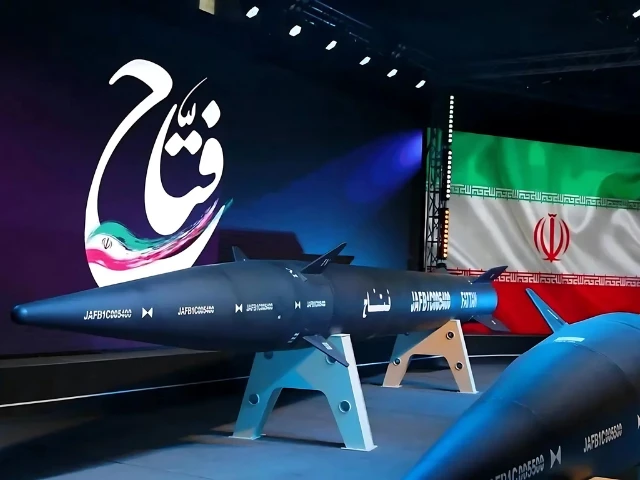Iran Deploys Hypersonic Fattah-1 Missile, Challenging Israeli Defences
Iran’s confirmed use of the Fattah-1 hypersonic missile marks a significant development in the escalating war with Israel, putting global attention on a new generation of weapons capable of bypassing traditional missile defence systems.
What is Fattah-1?
Unveiled in 2023 and named by Iran’s Supreme Leader Ayatollah Ali Khamenei, the Fattah-1 is Iran’s first operational hypersonic missile. Iranian sources claim it can travel at Mach 5 — five times the speed of sound — and is equipped with a manoeuvrable reentry vehicle, enabling it to alter its path during flight to avoid interception.
A New Threat to Israel’s Missile Shield
The missile’s advanced design targets weaknesses in Israel’s Iron Dome and Arrow defence systems. Running on solid fuel, Fattah-1 has a range of up to 1,400 kilometres and operates with a single-stage propulsion system. At its unveiling, a banner displayed in Hebrew read: “400 seconds to Tel Aviv”, underscoring its strategic intent.
READ MORE:
Khamenei Warns U.S. of Irreparable Damage Over Military Threats to Iran
Game-Changer in Modern Warfare
The launch on June 18 was publicly confirmed by the Islamic Revolutionary Guard Corps (IRGC). Experts, including Fabian Hinz from the International Institute for Strategic Studies, suggest that its manoeuvrability during reentry makes the missile highly evasive and difficult to intercept.
Unlike traditional ballistic missiles, hypersonic weapons do not follow predictable paths. Their ability to glide and shift course mid-air compresses the window of response for missile defence systems, increasing the likelihood of impact.
Broader Implications
If the Fattah-1 proves to be operationally reliable, it could force Israel to rethink its current air defence strategies. The missile’s use not only signals Iran’s growing military capability but also its intent to respond forcefully to perceived aggression from Israel.
Escalation of Conflict
Reports indicate that Israeli missile stocks are depleting, suggesting growing pressure on its defences. The conflict has already resulted in over 200 deaths across both sides, with hundreds more injured. Iran has vowed continued retaliation, while the United States — closely monitoring the situation — has called for Iran’s “unconditional surrender”, according to President Donald Trump.
Though the long-term strategic impact remains to be seen, the emergence of the Fattah-1 has undeniably altered the landscape of modern missile warfare and added a new layer of complexity to Middle Eastern security.



